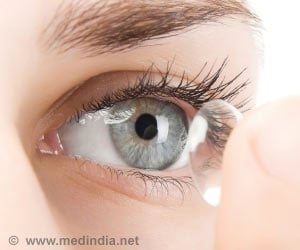Scientists have found that baking soda can alter our vision by changing the visual signal generated by photo-receptors in the eyes.

Within rods and cones, a small soluble molecule, cGMP, links photon absorption to the electrical activity of the photoreceptor. In the light, cGMP is destroyed and ion channels are closed. Positively charged sodium ions cease to enter the rod or cone and the membrane potential becomes more negative or hyperpolarized. Bicarbonate directly stimulates an enzyme called guanylate cyclase that synthesizes cGMP.
Lead author Clint Makino, Ph.D. said that by opposing the effect of light, bicarbonate limits the size of the photon response and quickens its recovery. As a result, sensitivity to light is slightly lower but our ability to track moving objects is improved.
"An intriguing implication is that vision may change with metabolic state, although further research is necessary for confirmation. It is now known that in some types of retinal diseases, a genetic defect causes cGMP in the rods and/or cones to rise to abnormally high, lethal levels. Once lost, rods and cones are not replaced, so an irreversible blindness is the tragic outcome."
The research appears online in Journal of Biological Chemistry.
Source-ANI












